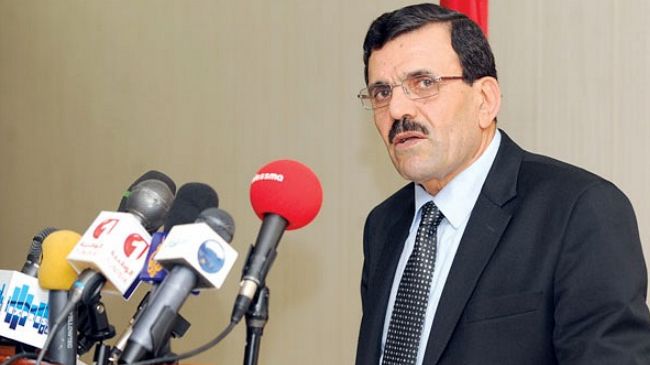Tunisia’s government line-up decided: PM-designate


Tunisia’s Prime Minister-designate Ali Larayedh says a new cabinet line-up has been decided amid political crisis in the North African country.
“After marathon negotiations, we have reached an agreement on the government,” Larayedh said on Thursday.
“We are going to give it the final touch tomorrow morning (Friday) before presenting it to the president …God willing, the next government will be the government of all Tunisians,” he added.
The assassination of leftist opposition figure Shokri Belaid outside his home in the capital Tunis in early February triggered violent demonstrations across the country, with the headquarters of the ruling Ennahda party being attacked in more than a dozen cities.
On February 9, the government issued a statement saying that at least one Tunisian policeman was killed and 59 others wounded during unrest sparked by the murder of Belaid. Some 375 people were also arrested, the statement added.
On February 19, Tunisian Prime Minister Hamadi Jebali resigned after he was unable to extricate the country from the political crisis through the formation of a new government.
Opposition groups have accused Ennahda of being behind the assassination. However, the party’s leader, Rashid al-Ghannushi, condemned the deadly assault and rejected the allegation.
Political analysts believe the assassination was carried out to discredit Tunisia’s Islamist movement and to block efforts to draft constitution based on Islamic law.
In January 2011, the country’s Western-backed dictator, Zine El Abidine Ben Ali, fled Tunisia to Saudi Arabia, after weeks of bloody protests over corruption, unemployment, and high food prices.
Tunisia’s first freely elected government was sworn in December 2011, a year after the start of a popular uprising that ended the 23-year authoritarian rule of Ben Ali.







